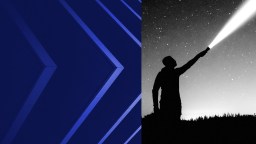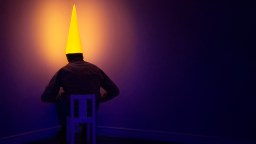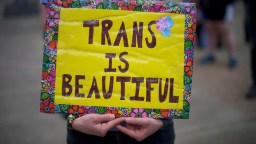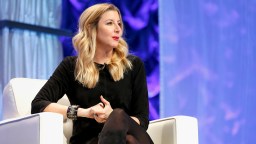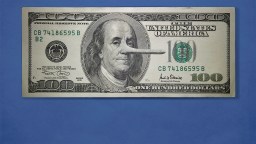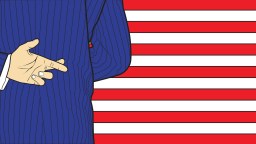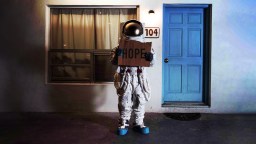The Present
All Stories
A company plans to transform the world’s most arid region by bringing icebergs from Antarctica.
What information can we trust? Truth isn’t black and white, so here are three requirements every fact should meet.
▸
7 min
—
with
Humans worship at the altar of excellence, but is our complete obsession with this “quality controlled” mode of intellect holding us back?
▸
5 min
—
with
There’s a hidden hypocrisy within bathroom laws based on biological sex.
▸
5 min
—
with
A study suggests people act aggressively on their prejudices when they have plausible deniability.
Sara Blakely, the inventor of Spanx, literally stared from the bottom. Here’s how she built a billion-dollar empire without a single business class.
▸
5 min
—
with
Scientists find a surprising way to biodegrade plastic at an impressively fast rate.
A Silicon Valley investor is spending millions on a publicity campaign aimed specifically at Elon Musk.
Users don’t need better media literacy to beat fake news. We need social media to be frank about its commercial interests.
▸
5 min
—
with
Astrophysicist Neil deGrasse Tyson releases an emotional video on the state of science in America.
If you want to know the state of equality in the US, statistics are a good place to start.
▸
5 min
—
with
Tesla’s market cap surpassed that of GM and Ford on April 10, 2017.
The world’s most populated country has had its fair share of great minds. Here, we take a quick look at ten thinkers you might not have thought about.
The thoughts on ruthless leadership by Italian politician and writer Niccolò Machiavelli resonate today.
Dr. Gottman, a psychologist who studies relationships, explains the 5:1 rule.
A new study predicts air-travel turbulence may occur over larger areas thanks to climate change.
A classic law of Internet debate explains why bringing up Hitler is a terrible idea as White House Press Secretary Sean Spicer found out in a disastrous press conference.
Video of a man being dragged off a United Airlines flight sparks widespread outrage.
Research shows the groups have different tastes when buying science books. For the most part.
There’s one whopper out there that people rarely acknowledge, but self-confessed “cynical libertarian” Dave Barry isn’t shying away.
▸
5 min
—
with
Dyslexia makes letters float, rotate, and flip on a page. It turns M’s into W’s, q’s into p’s, and so on. Changing the font-face might be able to help keep the letters in place on the page.
From olde English dogs, to immoral women, to weak men, to irritating women, to its prideful reclaiming, to ownership over a woman (there’s a theme here), the word “b*tch” has a long and fascinating history, and it’s all stored in the archives of the Merriam-Webster lexicography department.
▸
5 min
—
with
Is imitation the sincerest form of flattery, or a breach of intellectual property? That depends which continent you’re on, says Gish Jen.
▸
4 min
—
with
A team of researchers analyzed 1,280 suicide notes written between 2000 and 2009 to seek a new prevention strategy.
Elon Musk’s new company will use “neural lace” technology to link human brains with machines.
What if we build from the sky down? NYC architects release designs for a skyscraper that would hang from an asteroid and travel between hemispheres.
In the summer of 1969, America did the extraordinary. Let’s do it again.
▸
3 min
—
with
Billionaire George Soros, the subject of countless conservative conspiracy theories, funds the opposition to President Trump’s agenda.
Scientology is the true religion of America’s capitalist soul. “To me,” says Louis Theroux, “Scientology is selling spiritual hamburgers.”
▸
5 min
—
with
For the last two years the volume has risen on populist voices, culminating in a victory for President Trump. The day after his election, this is how “rude” New Yorkers treated one Muslim-American woman.
▸
2 min
—
with

